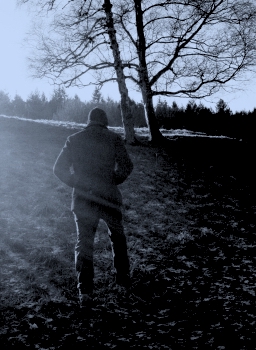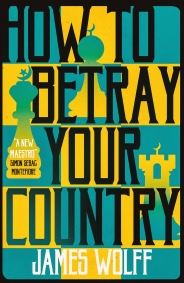
It's a little-known fact that spies worry about ethics, but you can see the proof for yourself. In 2017, Parliament's Intelligence and Security Committee reported that Britain's three spy agencies 'have each established Ethics Counsellors who provide a route to discuss moral, ethical or other concerns…. MI5 has led the way, establishing its Ethics Counsellor in 2006. SIS and GCHQ have now followed suit, appointing their own Ethics Counsellors in September 2012 and January 2014 respectively.
There are all sorts of sensible reasons for an intelligence agency to have an Ethics Counsellor. Newspaper headlines would suggest that the spying game might bring you into contact with things like rendition, waterboarding, illegal wars and mass surveillance. Could there be a profession morein need of an Ethics Counsellor? An oil executive? An arms dealer? A politician? It must be especially difficult to take a good long hard look at yourself if you spend all your time lurking in the shadows.
The protagonist of my new spy novel, August Drummond, has a more unorthodox approach to ethics. When his wife questions the morality of his chosen profession, August decides that to demonstrate his independence to her he will carry out an act of deliberate disobedience each year. This act, he decides, should try to make things better – it should right a wrong that has been allowed to persist for bureaucratic, reputational or political reasons.
This is his motivation for planting drugs in the car of a Russian spy, and for leaking a recording of a phone call between an Islamist radicaliser and a prostitute to a tabloid newspaper. These and other acts of disobedience are carried out under the noses of his managers and result in a 5 year internal hunt for the officer responsible. It is August's way of making sure that the job doesn't corrupt him, but, as you might imagine, it gets him into a world of trouble.
I don't know whether the choices August makes are the right ones, and I don't know whether his bosses are right when they label him a traitor. One of the enjoyable things about writing is that it allows you to play with questions rather than answer them, in the hope that in the process you'll find out what you really feel about something.
What I do know is that things don't get any easier for August after that. After losing his wife and being fired from his job, he boards a flight to Istanbul to start a new life only to see a young man several rows ahead behaving suspiciously. Moments before being detained by Turkish police at the other end, the young man throws away a piece of paper containing directions to an old European cemetery. Having indulged his rebellious streak for so long, August doesn't take more than a few seconds to decide that he should go in the young man's place, but very quickly he finds himself out of his depth and struggling to keep control of events that threaten to engulf him.
Having anchored the story in reality – that spies can be troubled by the ethics of what they do – I wanted to make sure that it continued that way. As a government employee turned novelist, it's important to me that my books avoid wild conspiracy theories or anything that could never plausibly happen in the real world, which rules out a lot of what we see on our television screens. After all, how many fist fights do spies actually get into? How often are they involved in high-speed car chases and high-stakes poker games? And how on earth do they get all those five star hotels past the office accountants?
That is not to say that the real world is any less dramatic. As Philip Roth wrote, reality “stupefies, it sickens, it infuriates and finally is even a kind of embarrassment to one's own meagre imagination. The actuality is continually outdoing our talents, and the culture tosses up figures almost daily that are the envy of any novelist.”
It's hard to make up stories as appalling and mundane as those we read about every week. I'm thinking as I write this of a terrorist on a flight desperately trying (and failing) to ignite the bomb in his shoe, and of two Russian assassins proclaiming to the world their interest in the height of cathedral spires. My new novel is set in Istanbul, the city where Saudi dissident Jamal Kashoggi was murdered by officials of his own government, and there's a moment in the leaked transcript of his murder in which the forensic specialist tasked with the dismemberment of the body says calmly, just minutes before Kashoggi's arrival, “I know how to cut very well. I have never worked on a warm body, though, but I'll also manage that very easily.” In his words you can hear the nerves as he tries to persuade his superior that he's up to the task, but also the pride he takes in his professionalism.
In a world where such terrible things happen, the only possible protagonist is one who is confused and frightened, who is often tearful and sometimes drunk, who worries all the time that he's gone too far, or that he hasn't gone far enough.

How to Betray Your Country by James Wolff is published by Bitter Lemon Press at £8.99
For more details visit www.bitterlemonpress.com